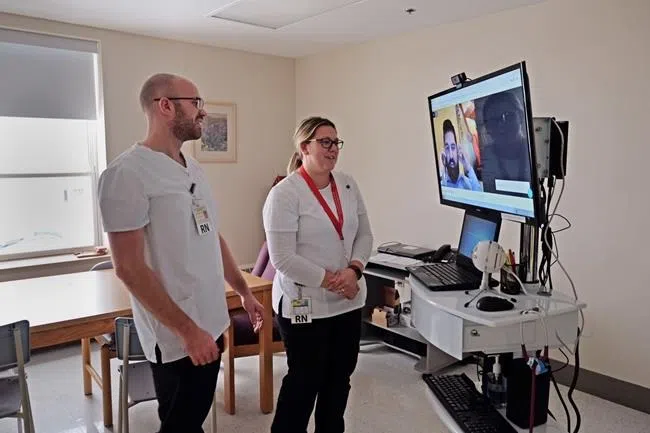
‘TV doctors’: Small East Coast hospital tries care via video screen
ALBERTON, P.E.I. — In a rural corner of P.E.I., a small hospital is trying a first-in-Canada approach to delivering care that could offer a solution to doctor shortages across the country.
Instead of a doctor doing hospital rounds in person, a nurse rolls in a TV cart with the physician on a video screen from an office elsewhere in the province or the country.
Western Hospital in Alberton, P.E.I., has undertaken a six-month pilot “tele-rounding” project — doctors treating patients via a secure video conference link. They can check on patients, review their files, order tests and even use a digital, bluetooth-enabled stethoscope applied by a nurse while a doctor listens remotely.
“There are no doctors on the floor there, but there are nursing staff and lab technicians. The nurse takes the cart from patient to patient, and we’re essentially doing hospital rounds technologically enabled and we’re providing physician care,” said Dr. Brett Belchetz, an emergency department physician and CEO of Maple — the Toronto company providing the tele-rounding service.
